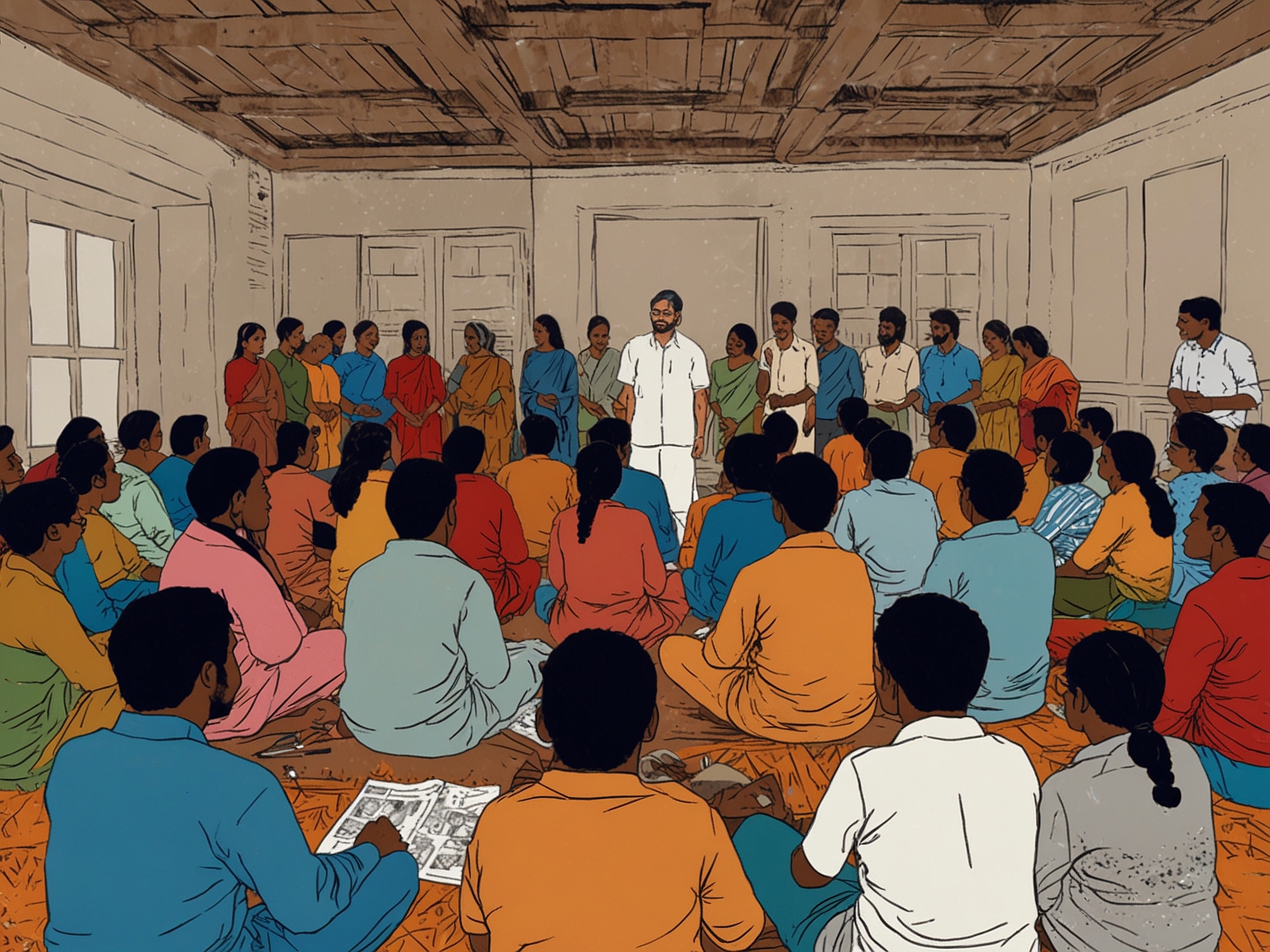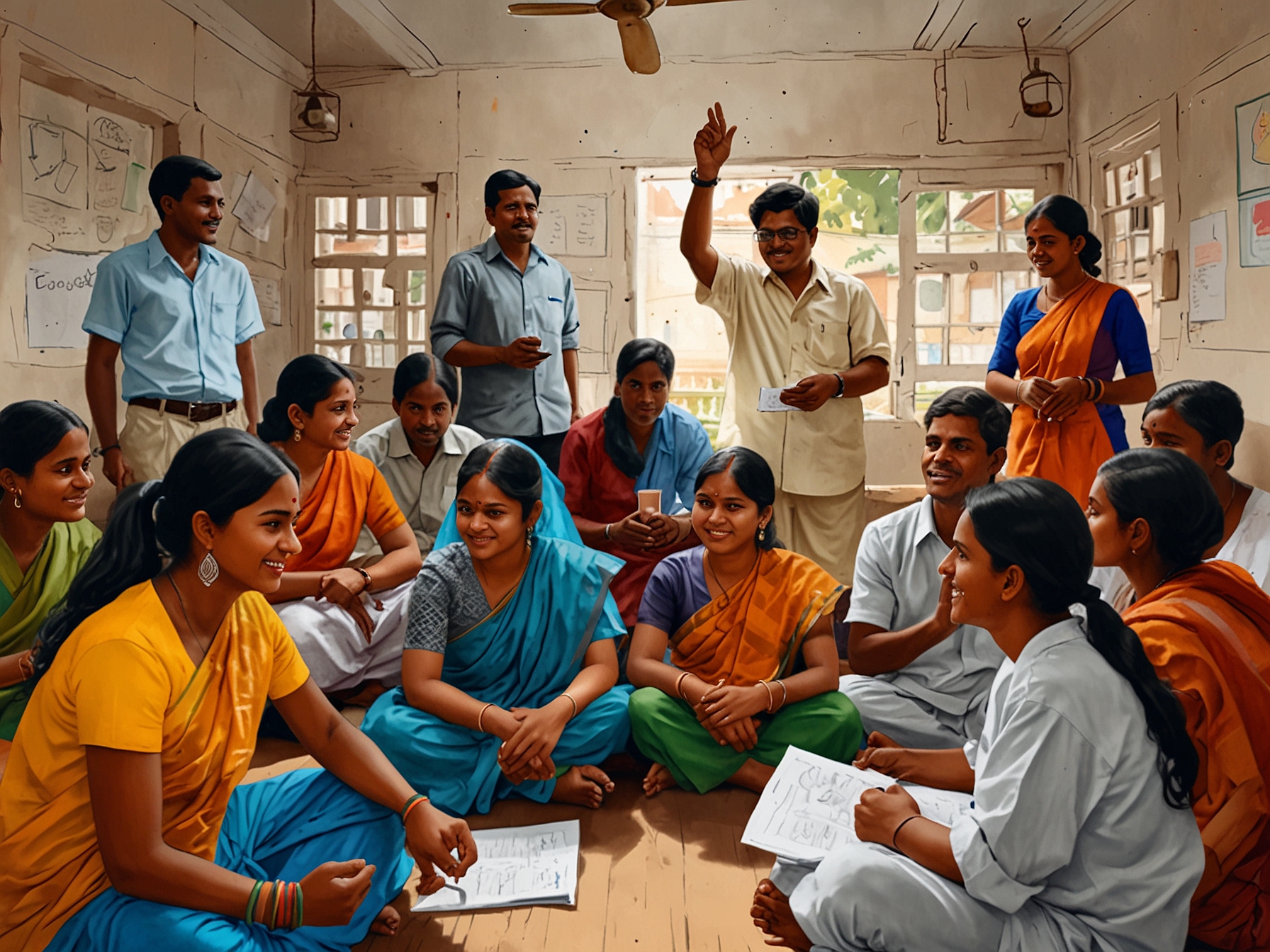Andhra Pradesh Repeals Two-Child Norm
The Andhra Pradesh Legislative Assembly made a significant change. The two-child rule for candidates in local body elections has been abolished. This decision, passed on Monday, signals a shift in societal norms and recognition of changing demographics.
Why did this happen now? Well, for starters, the youth population is dwindling. The decision took form through the AP Panchayat Raj (Amendment) Bill, 2024 and the AP Municipal Laws (Amendment) Bill, 2024. Introduced by key officials, including Minister Nadendla Manohar, these bills reflect a government’s adaptation to demographic shifts.

It’s not often you see legislation that aims to tackle the very fabric of community involvement. But here we are. Years back, this two-child norm was enacted. The idea was to manage growth, and it was a part of a wider strategy influenced by urgent concerns about resources.
But today, as Mr. Manohar pointed out, the Total Fertility Rate has drastically declined. So, is it time for a fresher perspective?
Historical Context of the Two-Child Norm
When diving into the history, the two-child policy stems from a 1994 law. It addressed population growth, and at that time, the focus was on sustainability in food security and job opportunities. It made sense then.

How many of us can fathom the weight of family planning on a community’s future? Yet, the landscape has shifted. The fertility rate has dropped from 3.7 in 1993 to just 1.6 today. It begs the question: is this policy still relevant?
Changing times demand an open mind. As the community evolves, so too should our policies. The number of children under 15 has shrunk. It fell from 28.6% in 2015-16 to a mere 26.5%. Meanwhile, the percentage of the elderly has grown.
This change can leave a society off balance. One must wonder about the long-term impact on culture and family structures.
Looking Ahead: Youth and Engagement

With the two-child norm gone, what does the future hold? Some members of the assembly celebrate this move. They assert that tracking population trends is vital.
Ignoring this change could result in dire consequences. How do we ensure a robust future generation? Initiatives must look to cultivate a vibrant youth demographic. Evolving family structures could very well infuse new energy into local politics.
It’s a refreshing thought. Perhaps we’ll witness a revitalization of civic engagement as more voices join the conversation. Could this be a turning point in how politics engage with families?
To ensure a promising future, support systems must adapt. Encouraging participation at the grassroots level paves the way for sustainable growth. Ultimately, can we rely on the younger generation to bridge generational gaps and shape tomorrow?
Rethinking Family Planning Policies
The days of restrictive family planning are perhaps numbered. The government acknowledges that a balanced, young population is crucial. What happens in the coming years remains to be seen.
Yet, with this new approach, communities are poised for transformation. Youth engagement may increase, bringing forth new voices and ideas. This could allow local governance to align closely with community needs.
There’s something beautiful about a society that evolves through engagement. It just might inspire others.
In conclusion, Andhra Pradesh’s repeal of the two-child norm reflects more than just a change in the laws. It’s a lens through which we can explore the importance of community and youthful engagement. It raises questions that demand answers.
Can we ensure societal health with evolving policies? Only time will tell.




